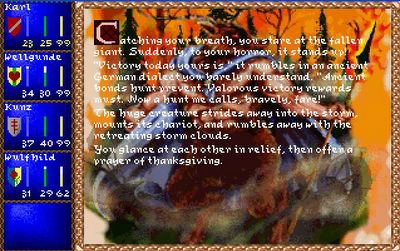Wednesday, February 22, 2006
Thursday, February 16, 2006
On Truth and Lie in an Extramoral Sense - Nietzsche
"It seems as if they were all intended to express an exalted happiness, an Olympian cloudlessness, and, as it were, a playing with seriousness. The man who is guided by concepts and abstractions only succeeds by such means in warding off misfortune, without ever gaining any happiness for himself from these abstractions. And while he aims for the greatest possible freedom from pain, the intuitive man, standing in the midst of a culture, already reaps from his intuition a harvest of continually in flowing illumination, cheer, and redemption - in addition to obtaining a defense against misfortune. To be sure, he suffers more intensely, when he suffers; he even suffers more frequently, since he does not understand how to learn from experience and keeps falling over and over again into the same ditch.
How differently the stoical man who learns from experience and governs himself by concepts is affected by the same misfortunes! This man, who at other times seeks nothing but sincerity, truth, freedom from deception, and protection against ensnaring surprise attacks, now executes a masterpiece of deception: he executes his masterpiece of deception in misfortune, as the other type of man executes his in times of happiness. He wears no quivering and changeable human face, but, as it were, a mask with dignified, symmetrical features. He does not cry; he does not even alter his voice. When a real storm cloud thunders above him, he wraps himself in his cloak, and with slow steps he walks from beneath it."
"It seems as if they were all intended to express an exalted happiness, an Olympian cloudlessness, and, as it were, a playing with seriousness. The man who is guided by concepts and abstractions only succeeds by such means in warding off misfortune, without ever gaining any happiness for himself from these abstractions. And while he aims for the greatest possible freedom from pain, the intuitive man, standing in the midst of a culture, already reaps from his intuition a harvest of continually in flowing illumination, cheer, and redemption - in addition to obtaining a defense against misfortune. To be sure, he suffers more intensely, when he suffers; he even suffers more frequently, since he does not understand how to learn from experience and keeps falling over and over again into the same ditch.
How differently the stoical man who learns from experience and governs himself by concepts is affected by the same misfortunes! This man, who at other times seeks nothing but sincerity, truth, freedom from deception, and protection against ensnaring surprise attacks, now executes a masterpiece of deception: he executes his masterpiece of deception in misfortune, as the other type of man executes his in times of happiness. He wears no quivering and changeable human face, but, as it were, a mask with dignified, symmetrical features. He does not cry; he does not even alter his voice. When a real storm cloud thunders above him, he wraps himself in his cloak, and with slow steps he walks from beneath it."
Wednesday, February 15, 2006
Denmark's new values
Interesting, wasn't it in the 1990s that Denmark changed its language to less resemble German?
Interesting, wasn't it in the 1990s that Denmark changed its language to less resemble German?
Thursday, February 09, 2006
Subscribe to:
Comments (Atom)


